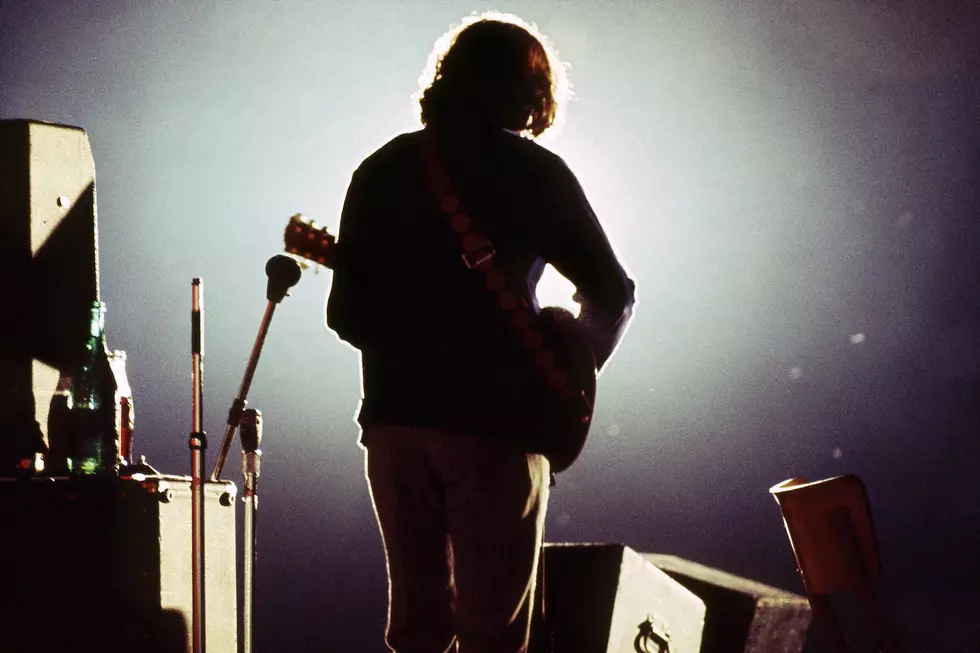
How Blood, Sweat and Tears Were Blackmailed Into a Disastrous Tour
Answering the question posed by the new documentary What the Hell Happened to Blood, Sweat & Tears? takes only a moment for Bobby Colomby. "They were an unbelievably good band and they were screwed – simple as that," the band's co-founding drummer tells UCR.
Opening on March 31 in New York and Los Angeles, the movie was directed by John Scheinfeld (The U.S. vs. John Lennon, Chasing Trane, Who is Harry Nilsson?) and illuminates an episode in Blood, Sweat & Tears history that irreparably compromised the band's status and stature not just in popular music but across all of pop culture.
Some of the stories are known, but the nearly two-hour film unearths more details – not to mention lots of previously unseen footage, photos and documentation – that cast the story in a markedly different light. "The highest praise I had is when [Colomby] and some of the other [band members] saw the film the first time," Scheinfeld tells UCR in a separate conversation. "They said, 'Jeez, I was there I didn't know half this stuff."
Blood, Sweat & Tears was riding high in the spring of 1970 with a chart-topping Grammy Award-winning second album and three Top 5 hits, "You've Made Me So Very Happy," "And When I Die" and "Spinning Wheel." Then they went on a U.S. State Department-sponsored tour behind the Iron Curtain into Romania, Czechoslovakia and Poland.
The tour itself was stressful, especially in Romania where government troops assaulted animated concert-goers, but it also put Blood, Sweat & Tears in a precarious position. On one side was the conservative right, which was anti-rock 'n' roll to begin with and was well aware of the group's opposition to the war in Vietnam. Afterward, however, the left began to describe them as a tool of the U.S. government and therefore "uncool." Abbie Hoffman and the Yippies even dubbed the band "Blood, Sweat & Bullshit."
Blood, Sweat & Tears didn't help themselves at an ambush post-tour news conference in Los Angeles, when Colomby, singer David Clayton-Thomas and guitarist Steve Katz unwittingly spoke about how the tour had changed their perspective on some issues back home.
"They were anti-Nixon, anti-Vietnam War, like a lot of people under 30 years old," Scheinfeld says. "And then they go over on this tour and see what it really is like under authoritarian regimes and Communism. They came home with a whole different perspective: 'Yeah, we don't like the war; we don't like Nixon – but if you're thinking that over there is better than what we have? Not so. We saw it. We know.' You have to admire those guys that they could experience this and change their thinking, and yet it caused some significant problems."
Watch a Trailer for 'What the Hell Happened to Blood, Sweat & Tears?'
What the Hell Happened to Blood, Sweat & Tears? makes it clear that the band "didn't have a choice" about doing the tour, as Colomby notes. Or as Katz says in the film, "We were blackmailed."
Clayton-Thomas was a Canadian who joined the band in 1968 to replace co-founder and original leader Al Kooper, and he had a criminal record back home. That caused problems as Clayton-Thomas attempted to renew his work visa, and he was suddenly facing deportation. Larry Goldblatt, the band's manager at the time, brokered a deal to get the singer his green card in exchange for an agreement to the tour.
"We went because we had to," says Colomby, who also composed the film's score with David Mann and recorded it with the current edition of Blood, Sweat & Tears. "We would've lost our singer. We had a No. 1 album, hit singles. ... We were, like, the biggest band in the world, and if he didn't get his green card we couldn't have played in the United States anymore. That's a place we should be playing with a No. 1 album.
"And, you know, these are tricky people," Colomby adds. "I didn't get the sense that the State Department was under the thumb of Nixon as other departments, at least the people we spoke to anyway, but yeah, someone may have set us up by pulling his green card so that we had to do this. I don't know if it was a conspiracy or whatever, but looking back we really had no choice. So we did it. I would do it again today, even knowing all the repercussions."
Blood, Sweat & Tears 3, released shortly after the band's return, went to No. 1 but wasn't nearly as successful as its predecessor. A commercial slide followed that reflected developing disdain in the counter-culture, including a Yippie demonstration outside a concert at New York's Madison Square Garden.
"Abbie Hoffman, who loves to be on camera, and the extreme left used this as an excuse to rail against a very successful band and say, 'They're CIA agents!' and just the most awful crap he was spewing," Colomby recalls. "But people bought it, and it hurt us." Rolling Stone magazine's David Felton also slammed the group, though in the documentary he recants and admits it was "kind of a snotty story."
The idea for What the Hell Happened to Blood, Sweat & Tears? was stoked over an early 2020 lunch between Scheinfeld and Colomby, during which the drummer shared intriguing details behind the tour – and also that a film crew led by Donn Cambern had gone over with the band and captured 65 hours of footage that had never been released.
"I thought, 'This is kind of fascinating,'" Scheinfeld says. "The two questions I always ask myself when deciding if I want to do a film is – first, is the story compelling enough? Yes, it was. Second, is are the audio-visual assets out there with which we could tell this story properly. Yes, if we could find them."
Listen to 'Hi-De-Ho' From 'Blood, Sweat & Tears 3'
Scheinfeld and his team "cast a very wide net looking for this footage, discovering that the original production company was long gone and storage facilities had no record of Cambern's footage. Then a woman named Dee Dee Dreyer contacted Scheinfeld to tell her she'd found two pristine copies of a 53-minute documentary that had been made for television but shelved and were in a pile to be destroyed. "With that, we had the foundation of the movie," Scheinfeld says.
From there, the director fleshed out things with even more unseen footage. He found Blood, Sweat & Tears' performance at the first Woodstock festival in 1969, where the group played two songs before their manager ordered the cameras to be shut off. There were also scores of photos from band members and other interested parties, U.S. government documents including White House communications about the tour between Nixon and Secretary of State Henry Kissinger, performance footage for TV stations in Yugoslavia and Germany, and files from the Romanian secret police.
What the Hell Happened to Blood, Sweat & Tears? includes interviews with Colomby, Clayton-Thomas, Cambern, Katz and bandmates Jim Fielder and Fred Lipsius, Clive Davis (who signed the group to Columbia Records), assistant band manager Tina Cunningham, Dan Klein (whose late father Mal Klein executive produced the original documentary) and a variety of historians, scholars and journalists. The filmmakers located several people who attended the concerts in those countries, as well.
"The story absolutely broadened as we were doing this," Scheinfeld adds. "We were able to learn a lot more about what was going on, both here and on the ground in Eastern Europe. I mean, we had no idea that the activities of a rock band would make it to the desk of the president of the United States, right? So, we were able to piece together a multi-layered story, most of which had never been told."
After its coastal premieres, What the Hell Happened to Blood, Sweat & Tears? will expand to theaters in North America and Canada. Subsequent streaming options are currently in negotiation, according to Scheinfeld. A soundtrack featuring 10 tour recordings was discovered at the Academy of Motion Picture Arts and Sciences' Margaret Herrick Library and will follow on April 21 along with a digital-only version of Colomby's score.
"It's cool to have it coming out like this," says Colomby, who owns the band name and still serves as musical director. "Back then, we took so much heat and we couldn't say why we did it. It's a long time ago, but now the truth is gonna be out there."
Scheinfeld, meanwhile, is currently wrapping a documentary about Elvis Presley's 1968 TV special for NBC as well as a film based on John Sexton's 2013 book Baseball is a Road to God: Seeing Beyond the Game.
Top 200 '70s Songs
More From Ultimate Classic Rock









